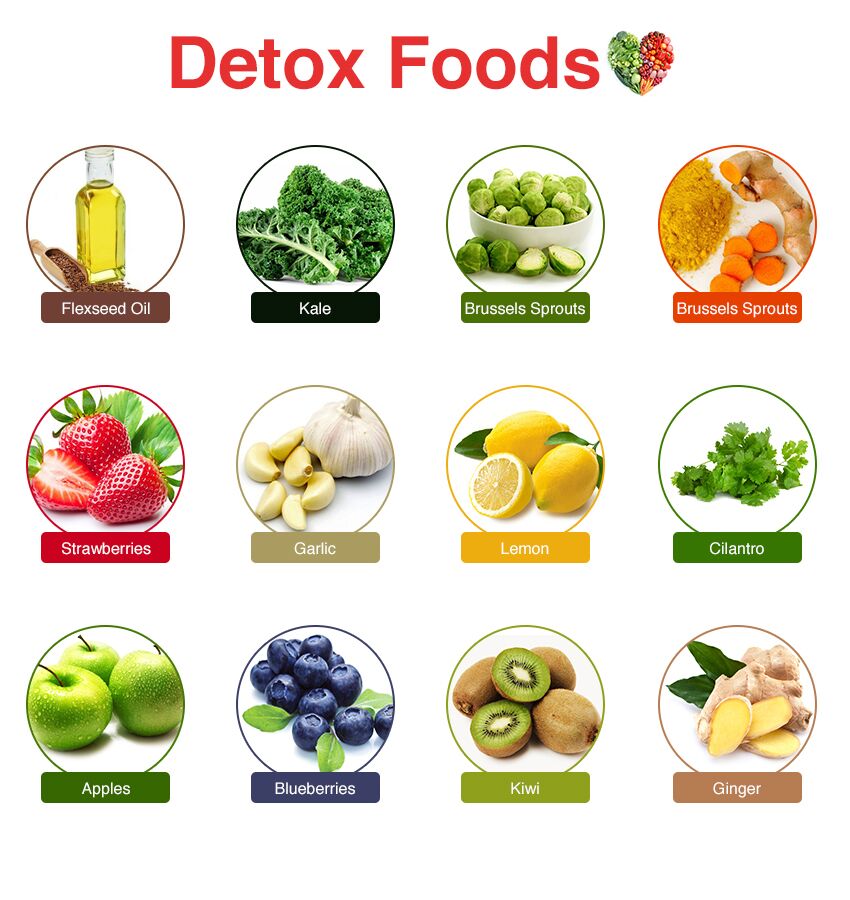Detox diets have gained immense popularity over the last few years. These diets claim to purify your blood and flush out dangerous toxins from your body. However, it’s not completely clear how detox diets work, what particular compounds they can eliminate, and if they even work. In this article, I will discuss what detox diets are and see what science says about whether they provide any health benefits.
What Are Detox Diets?
People are praising cleansing methods for facilitating weight loss, promoting optimal toxin elimination, and enhancing overall health. These diets commonly involve strict vegan or vegetarian diets, fasting, liquid diets, supplementation, juice fasting, or other methods that supposedly detoxify the body. Detox diets can even advocate the use of possibly harmful practices like coffee enemas, where a person administers coffee through the rectum.
According to researchers, self-administered coffee enemas can result in severe adverse effects such as rectal perforation, rectal burns, and electrolyte imbalance. This practice can even be deadly. Despite multiple claims of improved diet by detox diet proponents and creators, the majority of detox diets have no scientific evidence backing their safety or effectiveness. In addition, detox diets can be expensive, particularly those that recommend the use of dietary supplements and herbs.A number of detox diets are available on the Internet, including smoothie and juice detoxes and plant-based detoxes.
Several detox diets are not dangerous because people generally only follow them for a few days and generally consist of plant-based foods like juices and smoothies. Nevertheless, cleansing diets that involve long stretches of fasting, the use of herbal supplements, extreme calorie restrictions, or practices like enemas can result in harmful side effects and possibly have long-term health consequences.
Most Popular Ways to Detox
There are several ways to follow a detox diet – ranging from basic food modifications to complete starvation fasts.
Many detox diets involve at least one of the following:
- Drinking vegetable and fruit juices,tea, smoothies, and water.
- Fasting for 1 to 3 days.
- Drinking only particular liquids, like lemon juice or salted water.
- Taking herbs or supplements.
- Eliminating foods high in contaminants, allergens, and heavy metals.
- Avoiding all allergenic foods, then gradually reintroducing them.
- Using enemas, colon cleanses, or laxatives.
- Regularly exercising.
- Eliminating refined sugar, cigarettes, coffee, and alcohol completely.
Detox diets differ in duration and intensity.
Which Toxins are Removed?
Detox diets seldom identify the particular toxins they aim

to eliminate. The mechanism through which they work is also not clear. As a matter of fact, there’s minimal evidence that detox diets flush out any toxins from the body. The truth is that your body can cleanse itself through sweat, urine, feces, and liver. Your liver makes toxic contents harmless, then makes sure that they are eliminated from the body.
Despite this, some chemicals might not be as easily eliminated by these processes, including bisphenol A (BPA),persistent organic pollutants (POPs), heavy metals, and phthalates. These substances can get deposited in blood or fat tissue and take very long – sometimes years – for your body to eliminate. Nevertheless, these substances usually are removed from or prohibited in commercial items today. All in all, there’s little evidence that detox diets help remove any of these substances.
Are Detox Diets Effective?
Some people say that following a detox diet makes them feel more energetic and focused. However, this feeling of enhanced well-being might only be because of eliminating alcohol, processed foods, and other detrimental compounds from your diet. You might also be consuming minerals and vitamins that were perhaps absent from your diet initially. With that said, several people also report feeling quite unwell during the detox diet period.
Impact on Weight Loss
Only a handful of clinical studies have delved into the impact of detox diets on weight loss. While some individuals might shed several pounds quickly, this impact seems to be because of loss of carb and fluid stores instead of fat. You will regain weight quickly once you go off the diet.
One research in overweight Korean women studies the lemon detox diet, which restrict you to a mixture of organic palm or maple syrups and lemon juice for a week. This diet lowered BMI, body weight, waist-to-hip ratio, body fat percentage, markers of inflammation, circulating leptin levels, insulin resistance, and waist circumference significantly. If a detox diet entails major calorie restriction, it will most definitely improve metabolic health and promote weight loss. However, it is unlikely to keep your weight low in the long run.

Impact on Stress
Many types of detox diets might have an effect similar to those of intermittent or short-term fasting. Short-term fasting might improve numerous disease markers in certain individuals, including improved insulin and leptin sensitivity. Nevertheless, these effects don’t apply to everyone. Studies in women reveal that both a 48-hour fast and a 3-week period of lower calorie consumption might increase your levels of stress hormones. To top it off, crash diets can be a stressful experience, as they encompass feeling severe hunger and resisting temptations.
Possible Advantages of Detox Diets
Some aspects of detox diets might offer health benefits, including:
- Getting rid of excess fat
- Eliminating dietary sources of POPs and heavy metals
- Exercising frequently
- Consuming healthy and nutritious foods.
- Avoiding processed foods
- Drinking green tea and water
- Relaxing, limiting stress, and sleeping well.
Following these guidelines is usually associated with improved health – irrespective of whether or not you follow a detox diet.
Side Effects
Before starting a cleansing diet, you should learn about the potential side effects.
- Extreme Calorie Restriction: Many detox diets suggest extreme calorie restriction or fasting. Reduced calorie intake and short-term fasting can lead to bad breath, irritability, and fatigue.
- Long-term fasting can lead to mineral, vitamin, and energy deficiencies, along with electrolyte imbalance.
- Overdose
- Certain detox diets might carry the risk of overdosing on laxatives, diuretics, supplements, and even water.
The Bottom Line
While diets that can supposedly detoxify the body are popular, there is limited scientific evidence to support their effectiveness. Alternatively, plenty of research supports the idea that consuming a balanced diet and avoiding smoking, drinking, and exposure to environmental toxins can enhance overall health. As per available research, detox diets aren’t necessary and are unlikely to offer long-term health benefits. They might even be detrimental in certain cases.


